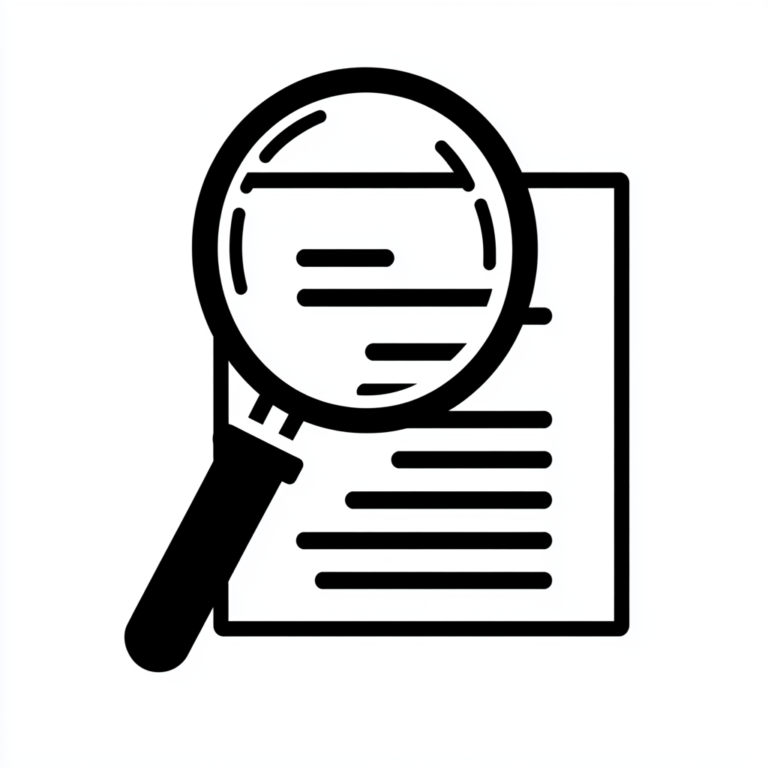
Raleigh DWI Lawyer: A Guide Understanding DWI Law in NC

Facing a DWI charge can be a daunting and overwhelming experience, fraught with uncertainty and potential long-term consequences. At Van Camp, Meachem & Newman, PLLC, we understand the gravity of these charges and the profound impact they can have on your life. It is crucial to hire an experienced attorney who can effectively guide you through your DWI case and protect your rights.
With our extensive experience and dedicated approach to DWI defense, we are committed to providing you with the knowledgeable and compassionate legal representation you need. Our approach is built on the understanding that experienced legal professionals are essential for navigating complex DWI cases in North Carolina. That’s why our Raleigh DWI attorneys are walking you through the NC DWI process, explaining the potential defenses available.
If you are facing a DWI charge, contact us today to schedule a free consultation and discuss your case with our team.
Table of Contents
Introduction to North Carolina’s DWI Laws
North Carolina’s DWI laws are among the strictest in the country, designed to deter impaired driving and protect public safety. These laws set forth the rules for prosecuting and defending DWI offenses, outlining the legal standards and penalties for those accused of driving while impaired. For anyone facing a DWI charge or allegation, understanding North Carolina’s DWI laws is essential to making informed decisions and protecting your rights.
Navigating the complex legal landscape of DWI cases in Raleigh and throughout North Carolina can be overwhelming. That’s why working with experienced Raleigh DWI lawyers is so important. Skilled legal professionals can provide the guidance and representation needed to address the unique challenges of DWI offenses, ensuring that your case is handled with the utmost care and expertise.
Understanding DWI Offenses
DWI offenses in North Carolina cover a range of situations where a person operates a motor vehicle while impaired by alcohol, drugs, or a combination of both. Even prescription medications or over-the-counter substances can lead to impaired driving offenses if they affect your ability to drive safely. The state’s DWI laws are comprehensive and impose serious legal consequences for those found guilty of impaired driving.
Because the penalties for DWI offenses are so severe, it’s important to get in touch with an experienced Raleigh DWI lawyer as soon as possible. A knowledgeable DWI lawyer can help you understand the charges against you, explain your rights, and develop a defense strategy tailored to your specific situation. Whether you are facing your first DWI charge or have prior offenses, having a dedicated legal advocate on your side can make a significant difference in the outcome of your case.
Legal Limits and DWI
In North Carolina, the legal limit for blood alcohol concentration (BAC) is 0.08% for drivers aged 21 and older. For commercial drivers, the legal limit is even lower at 0.04%, reflecting the higher standard of responsibility required for those operating commercial vehicles. Drivers under the age of 21 are subject to North Carolina’s Zero Tolerance Law, which means any detectable amount of alcohol in their system can result in a DWI charge.
Exceeding these legal limits can lead to immediate and serious consequences, including arrest, license suspension, and a potential DWI conviction. If you are facing allegations of driving over the legal limit, a Raleigh DWI lawyer can help you navigate the legal process, challenge the evidence, and work to protect your rights and driving privileges.
The DWI Process in NC
The journey from arrest to resolution can be complex, and knowing what to expect at each stage can help alleviate some of the stress and uncertainty. It is important to understand your rights during a DWI stop and the procedures that follow a DWI arrest, as these early stages can significantly impact the outcome of your case.
Navigating a DWI allegation in North Carolina requires a thorough understanding of the state's legal system to ensure your rights are protected throughout the process.
Reasonable Suspicion and Arrest
Law enforcement officers in North Carolina must have reasonable suspicion to initiate a traffic stop for a suspected DWI offense. This means they must observe specific behaviors or violations that suggest impaired driving, such as swerving, erratic speed, or running a red light. Once stopped, officers may conduct field sobriety tests or request a breathalyzer test if they suspect impairment.
If you fail these field sobriety tests or if the breathalyzer indicates impairment, you may be arrested for a DWI offense. However, the legal process does not end there. An experienced Raleigh DWI lawyer can review the circumstances of your stop and arrest to determine if your rights were violated or if the officers lacked reasonable suspicion. Challenging the legality of the stop and the procedures used during your arrest can be a critical part of your defense strategy in a Raleigh DWI case.
Initial Arrest and Charges
The DWI process begins with the initial traffic stop. Law enforcement officers need a reasonable and articulable suspicion to pull you over. Once stopped, if the officer suspects impairment, they may conduct field sobriety tests or request a breathalyzer test. If these tests suggest impairment, you will be arrested and charged with Driving While Impaired (DWI). In North Carolina, a DWI arrest can result in an immediate license suspension, especially if you refuse a chemical test or have prior convictions.
Booking and Bail Process
After the arrest, you will be taken to the police station for booking. This involves taking your fingerprints, photographs, and recording personal information. You may be held in custody until a bail hearing, where a judge will determine whether you can be released on bail and set the amount. Bail can be paid to secure your release while awaiting trial.
Arraignment and Court Appearances
The arraignment is your first formal court appearance, where you will be informed of the charges against you and asked to enter a plea of guilty, not guilty, or no contest.
If the case proceeds to trial, a guilty verdict can result in significant legal and financial consequences, such as fines, penalties, increased insurance costs, and license suspension. This is also when the court will schedule future hearings, including pre-trial conferences and the trial itself. It’s essential to have a Raleigh DWI lawyer at this stage to ensure your rights are protected and to begin strategizing your defense.
Pre-Trial Motions and Discovery
During the pre-trial phase, your attorney will file motions to challenge the evidence against you and to suppress any unlawfully obtained evidence. This phase also involves the discovery process, where both sides exchange information and evidence. Your DWI lawyer will meticulously review the evidence, including police reports, video footage, and witness statements, to build a strong defense.
Plea Bargaining
In many DWI cases, there may be an opportunity to negotiate a plea bargain with the prosecution. A plea bargain involves pleading guilty to a lesser charge in exchange for reduced penalties. Your Raleigh DWI lawyer will advise you on the pros and cons of accepting a plea deal versus proceeding to trial.
DWI Trial
If your case goes to trial, both the prosecution and defense will present their evidence and arguments before a judge or jury. The prosecution must prove beyond a reasonable doubt that you were driving while impaired. Your attorney will challenge the prosecution's evidence, cross-examine witnesses, and present any defenses to create reasonable doubt about your guilt.
DWI Sentencing
If you are found guilty or accept a plea deal for DWI, the court will proceed to sentencing.
During DWI sentencing in North Carolina, courts consider aggravating and mitigating factors to determine the severity of the legal penalties. Aggravating factors, such as reckless driving, causing serious injury, having a high BAC level, or prior DWI convictions, can result in harsher penalties, including substantial fines and longer jail time. In contrast, mitigating factors—like a clean driving record or participation in treatment programs—may help reduce the severity of the sentence.
Penalties for a DWI conviction can include fines, jail time, community service, probation, and mandatory alcohol education programs. Your attorney will advocate for the most lenient sentence possible, considering the circumstances of your case.
In cases involving felony death by vehicle, where a DWI results in a fatality, the legal penalties are even more severe.
Post-Conviction Options
Even after a conviction, there may be options to appeal the decision or seek post-conviction relief. An experienced Raleigh DWI lawyer can help you understand these options and pursue any available legal remedies to mitigate the impact of the conviction on your life.
Prior DWI Convictions: Impact on Your Case
Having prior DWI convictions can greatly increase the stakes in your current DWI case in North Carolina. The state uses a seven-year “look-back period” to consider previous DWI convictions when determining sentencing for a new offense. Repeat offenders face much harsher penalties, including longer periods of license suspension, mandatory jail time, and even the possibility of felony charges in cases involving multiple prior DWI convictions.
If you have a prior DWI conviction, it is especially important to work with an experienced Raleigh DWI lawyer who understands the complex legal landscape of repeat DWI cases. Your attorney can help you develop a strong defense strategy aimed at minimizing the consequences of a new DWI conviction, advocating for reduced penalties, and protecting your future. With the right legal counsel, you can navigate the challenges of a repeat DWI offense and work toward the best possible outcome for your case.
The Emotional Impact of a DWI Charge

Being charged with a DWI can be an emotionally overwhelming experience, bringing about a range of intense feelings such as stress, shame, and fear. In North Carolina, a DWI charge is considered a serious offense, which can intensify the emotional impact and heighten concerns about the future. The emotional toll of a DWI charge can extend beyond the individual to affect family and relationships, creating a challenging and isolating situation.
At Van Camp, Meacham & Newman, PLLC, we understand the profound emotional impact of facing such charges and are committed to providing the support and compassionate legal guidance you need during this difficult time
Examples of the emotional impact facing those charged with DWI include:
- Stress and Anxiety: The uncertainty of a DWI charge often brings significant stress and anxiety, affecting your mental health and leading to sleep disturbances, difficulty concentrating, and increased irritability.
- Shame and Embarrassment: A DWI charge can cause deep shame and embarrassment, leading to social stigma, feelings of isolation, and challenges in maintaining personal and professional relationships.
- Fear of Consequences: The potential legal consequences of a DWI conviction, such as fines, jail time, license suspension, and mandatory education programs, can cause significant emotional turmoil and impact your sense of security.
- Impact on Family and Relationships: A DWI charge can strain family dynamics and relationships, leading to anxiety, conflicts, and misunderstandings among loved ones. Communicating openly and seeking family support is crucial during this difficult time.
The Legal Impact of DWI
A DWI charge carries significant legal ramifications that can affect various aspects of your life including your freedom, finances, and future opportunities.
At Van Camp, Meacham & Newman, PLLC, we aim to provide clarity and guidance on the legal impacts of a DWI, ensuring you are well-prepared to navigate this challenging legal landscape.
Some potential legal consequences of DWI in NC include:
Criminal Penalties
A DWI conviction can result in severe criminal penalties, including hefty fines, jail or prison time, probation, community service, and mandatory alcohol education or treatment programs, with long-lasting impacts on your life and freedom. North Carolina's DWI laws impose strict penalties on DWI offenders, including court costs and possible ignition interlock device requirements.
License Suspension or Revocation
Suspension or revocation of your driver’s license is an immediate consequence, disrupting daily life by affecting your ability to commute to work, attend to family responsibilities, and maintain independence. The North Carolina Division of Motor Vehicles (DMV) is responsible for administering driver's license suspensions and revocations for DWI offenders, and these administrative penalties can significantly impact your ability to operate motor vehicles.
Increased Insurance Costs
A DWI conviction typically leads to significantly higher auto insurance premiums and can result in policy cancellation, forcing you to seek high-risk, more expensive insurance coverage. A DWI conviction can negatively impact your driving record, leading to higher premiums and long-term financial consequences.
Employment Challenges
A DWI charge can harm employment—both current and future job prospects, as many employers conduct background checks and view a DWI conviction as a red flag, especially for jobs requiring driving or high responsibility. A DWI conviction on your driving record can affect job opportunities, especially those involving motor vehicles.
Long-Term Criminal Record
A DWI conviction becomes part of your permanent criminal record, affecting your ability to secure housing, obtain loans, travel to certain countries, and impacting your personal reputation. Your driving record will also reflect the conviction, which can have ongoing legal and administrative implications.
Mandatory Alcohol Education and Treatment Programs
Courts often require attendance in alcohol education or treatment programs, which demand time, financial resources, and compliance; failure to complete them can lead to further legal consequences. Substance abuse assessment is often required for DWI offenders as part of the legal process and is necessary for license reinstatement.
Probation and Legal Supervision
Probation is a common outcome, requiring adherence to court-set conditions like regular check-ins, abstaining from alcohol, and avoiding legal trouble; violations can result in additional penalties, including imprisonment. North Carolina law requires strict compliance with probation terms for DWI offenders.
Understanding North Carolina DWI laws and the role of the North Carolina Division of Motor Vehicles is essential for anyone in North Carolina facing a DWI charge. North Carolina's DWI laws are designed to protect public safety and impose significant legal and administrative penalties on DWI offenders.
Common Defenses in DWI Cases
When facing a DWI charge in Raleigh or the surrounding areas, having a robust defense strategy is crucial to protect your rights and seek a favorable outcome. At Van Camp Law, our experienced Raleigh DWI attorneys are well-versed in the complexities of DWI law and employ a variety of defenses tailored to the specifics of each of our clients' cases.
Here are some of the approaches your defense team may take, depending on the circumstances of your specific case:
Lack of Reasonable Suspicion for the Traffic Stop
Law enforcement officers must have a reasonable suspicion that a traffic law has been violated to legally stop a vehicle.
If it can be demonstrated that the officer lacked sufficient reason to initiate the stop, any evidence gathered during the stop may be deemed inadmissible in court. This defense challenges the legality of the initial traffic stop, potentially leading to the dismissal of the charges.
No Probable Cause for Arrest
After a traffic stop, officers must have probable cause to make an arrest for DWI. Probable cause generally requires observable signs of impairment, such as erratic driving, slurred speech, or failed field sobriety tests.
If it can be shown that the officer did not have probable cause to believe you were impaired, the arrest may be invalid, and the charges could be dismissed.
Improperly Administered Field Sobriety Tests
Field sobriety tests are subjective and can be influenced by various factors unrelated to alcohol consumption, such as medical conditions, fatigue, or even uneven road surfaces.
Challenging the administration and interpretation of these tests is a common defense strategy. If the tests were not conducted according to standardized procedures, their results may be unreliable.
Breathalyzer Test Inaccuracy or Malfunction
Breathalyzer machines must be properly maintained and calibrated to provide accurate readings. Factors such as improper calibration, device malfunction, or the presence of certain medical conditions can lead to inaccurate breath test results.
Questioning the accuracy and reliability of the breathalyzer test can be a powerful defense, potentially invalidating the results.
Medical Conditions That Mimic Impairment
Certain medical conditions, such as acid reflux, diabetes, or neurological disorders, can affect the results of both breathalyzer and field sobriety tests.
By presenting medical evidence that explains the symptoms observed by the officer or the breath test results, it may be possible to cast doubt on the prosecution’s case.
Violation of Miranda Rights
Upon arrest, law enforcement officers are required to inform you of your Miranda rights, including the right to remain silent and the right to an attorney.
If these rights were not properly communicated, any statements made after the arrest may be inadmissible in court. This defense focuses on protecting your constitutional rights and ensuring that improperly obtained evidence is excluded.
Blood Test Protocol Errors
Blood tests, like breath tests, must be conducted following strict protocols to ensure accuracy.
If there were issues with the way the blood sample was collected, stored, or analyzed, the results may be challenged. This defense scrutinizes the chain of custody and the procedures followed during the blood test process.
Rising Blood Alcohol Defense
The rising blood alcohol defense argues that your blood alcohol concentration (BAC) was below the legal limit while you were driving but increased to an illegal level by the time the test was administered.
This can occur if there was a significant delay between the traffic stop and the administration of the test. Expert testimony can be used to support this defense by explaining how alcohol absorption rates work.
Lack of Evidence That You Were Driving
In some cases, particularly those involving accidents, the prosecution may struggle to prove that you were driving the vehicle.
If there were no witnesses to the driving or if there is uncertainty about who was operating the vehicle, this defense can create reasonable doubt about a critical element of the DWI charge.
Challenging Officer Observations
Officers often rely on their observations of a driver’s behavior, appearance, and speech to support a DWI charge. These observations can be subjective and influenced by factors other than alcohol impairment.
By challenging the officer’s observations and presenting alternative explanations for the behavior (such as fatigue or anxiety), the defense can undermine the prosecution’s case.
Our Three-Step Approach to Raleigh DWI Defense
At Van Camp, Meacham & Newman, PLLC, we understand the complexity and seriousness of DWI charges. Our dedicated team of Raleigh DWI lawyers employs a structured and strategic three-step approach to ensure the best possible defense for our clients. This comprehensive method allows us to address every aspect of your case with precision and care.
#1 - Initial Consultation: Understanding Your Case
The first step in our defense strategy is the initial consultation, where we thoroughly assess your unique situation by listening to your account, reviewing the police report, and analyzing the evidence. This phase sets the foundation for your defense by providing personalized legal advice tailored to your case, ensuring you understand the legal process, potential defenses, and possible outcomes, and are well-prepared for the road ahead.
#2 - Building Your Defense: Investigating and Strategizing
Once we understand your case, we move to the second step: building your defense through a meticulous investigation of all evidence and developing a strategic defense plan tailored to your circumstances. This involves examining police reports, dashcam and bodycam footage, field sobriety and breathalyzer test results, and witness statements, as well as checking the maintenance and calibration records of testing equipment and the conduct of arresting officers.
We identify weaknesses and inconsistencies in the prosecution's case, including procedural errors and rights violations, consulting with experts as needed to support your defense. This comprehensive approach allows us to challenge the evidence against you effectively and advocate for the best possible outcome.
#3 - Court Representation: Advocating for the Best Outcome
The final step in our approach is representing you in court, where an experienced Raleigh DWI lawyer vigorously advocates on your behalf, challenging the prosecution's evidence and presenting compelling arguments. We aim to achieve the best possible outcome, whether through negotiating favorable plea agreements or defending you at trial. Our commitment extends beyond the courtroom, offering post-trial support to help you navigate any ongoing legal requirements and minimize the long-term impact of your DWI charge.
Why Choose a Raleigh DWI Lawyer from Van Camp Law
Selecting the right legal representation is crucial when facing a DWI charge. Our dedicated team of Raleigh DWI lawyers brings a wealth of experience, personalized attention, and a proven track record of success to each case. Here are compelling reasons to choose us for your DWI defense in Raleigh and beyond.
Extensive Experience in DWI Defense
Our attorneys have successfully defended numerous clients against DWI charges, navigating the complexities of impaired driving laws with precision. Our familiarity with local courts, judges, and prosecutors allows us to craft effective defense strategies tailored to the specifics of your case.

Personalized and Compassionate Representation
We provide compassionate and personalized representation, taking the time to understand your unique situation and concerns. We are committed to guiding you through the legal process with empathy and support, ensuring you feel informed and confident every step of the way.

Strong Track Record of Success
Our firm is dedicated to vigorously defending our clients' rights and has a history of securing dismissals, reductions in charges, and acquittals. Our success is a testament to our thorough preparation, strategic approach, and relentless advocacy.

Comprehensive Legal Strategy
From the initial consultation to the final resolution, we meticulously investigate every detail of your case, challenge the prosecution's evidence, and explore all possible defenses. Our goal is to provide you with the best possible defense and achieve the most favorable outcome.

Commitment to Protecting Your Rights
We are not afraid to challenge unlawful actions by law enforcement or to question the validity of evidence presented against you. We are committed to holding the prosecution to their burden of proof and to defending your constitutional rights at every stage of the proceedings.
Extensive Experience in DWI Defense
Our attorneys have successfully defended numerous clients against DWI charges, navigating the complexities of impaired driving laws with precision. Our familiarity with local courts, judges, and prosecutors allows us to craft effective defense strategies tailored to the specifics of your case.
Personalized and Compassionate Representation
We provide compassionate and personalized representation, taking the time to understand your unique situation and concerns. We are committed to guiding you through the legal process with empathy and support, ensuring you feel informed and confident every step of the way.
Strong Track Record of Success
Our firm is dedicated to vigorously defending our clients' rights and has a history of securing dismissals, reductions in charges, and acquittals. Our success is a testament to our thorough preparation, strategic approach, and relentless advocacy.
Comprehensive Legal Strategy
From the initial consultation to the final resolution, we meticulously investigate every detail of your case, challenge the prosecution's evidence, and explore all possible defenses. Our goal is to provide you with the best possible defense and achieve the most favorable outcome.
Commitment to Protecting Your Rights
We are not afraid to challenge unlawful actions by law enforcement or to question the validity of evidence presented against you. We are committed to holding the prosecution to their burden of proof and to defending your constitutional rights at every stage of the proceedings.
Raleigh DWI Lawyer FAQs
What should I do if I’m pulled over for a suspected DWI?
Remain calm, provide requested documents, and remember you have the right to remain silent and refuse field sobriety tests, though this may lead to immediate consequences.
What are the potential penalties for a DWI conviction in Raleigh?
Penalties can include fines, jail time, license suspension, probation, community service, and mandatory alcohol education programs.
Can a DWI charge be reduced or dismissed?
Yes, with the help of an experienced Raleigh DWI lawyer, charges can sometimes be reduced or dismissed by identifying weaknesses in the prosecution’s case.
What is an ignition interlock device, and when is it required?
An ignition interlock device prevents a vehicle from starting if alcohol is detected; it is often required for drivers with a BAC of 0.15 or higher or repeat offenders.
What are the legal limits for BAC in NC?
In North Carolina, the legal limit for blood alcohol concentration (BAC) is:
- 0.08% for drivers aged 21 and over.
- 0.04% for commercial drivers.
- 0.00% (zero tolerance) for drivers under 21.
Exceeding these limits can result in a DWI charge.
How long does a DWI stay on my criminal record?
A DWI conviction typically remains on your criminal record permanently and cannot be expunged in North Carolina.
Can I refuse a breathalyzer or blood test in the state of North Carolina?
You can refuse a breathalyzer test, but it leads to immediate penalties, including a one-year license suspension under North Carolina’s “implied consent” law.
How can a Raleigh DWI lawyer help me?
A DWI lawyer can protect your rights, challenge evidence, negotiate plea bargains, and represent you in court to achieve the best possible outcome.
What should I bring to my initial consultation with my Raleigh DWI lawyer?
Bring any related documents such as police reports, court notices, and a detailed account of the events leading to your arrest.
Contact an Experienced and Strategic Raleigh DWI Lawyer Today
Facing a DWI charge is a serious matter that requires expert legal guidance and a strategic approach. At Van Camp, Meacham & Newman, PLLC, our experienced criminal defense lawyers are dedicated to defending your rights and helping you achieve the best possible outcome.
Don't navigate this challenging time alone—reach out to us today for a comprehensive consultation and let us put our expertise to work for you.
Contact a Raleigh DWI lawyer now to take the first step towards a strong and effective defense by calling 910-295-2525 or filling out the form below to get started.

